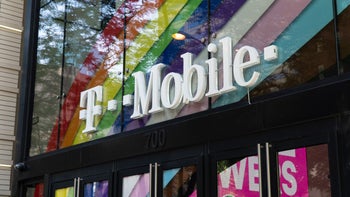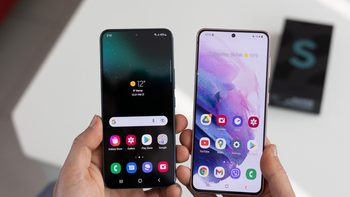Democrats and GOP might negotiate over a less strict version of net neutrality

Last month, the Democrat-controlled House of Representatives approved the Save the Internet Act by a vote of 232-190. The bill would return net neutrality to the books; the Obama-era rules made sure that all streaming content was treated the same by ISPs and wireless providers. It also prevented a company that streams content over the internet from paying a carrier to get a "fast lane." Net neutrality was repealed last year by the FCC under its Trump-appointed Chairman Ajit Pai.
While the Save the Internet Act was passed by the House, Senate Majority Leader Mitch McConnell continued to block most bills from reaching the Senate floor for a vote. Since net neutrality has become a political football, the bill was unlikely to pass the Senate where the Republicans hold sway. And even if it did pass that chamber of government by a miracle, President Donald Trump would no doubt veto the proposed legislation.
According to Ars Technica, 47 Democrats have given up on passing a bill that would fully restore net neutrality. Instead, they are calling for a compromise with the Republicans who say that they would pass a bill that isn't as strict. The 47 Democrats, in a letter to House Speaker Nancy Pelosi, wrote that instead of both parties bickering it would be more helpful to Americans if "a bipartisan working group"could be put together to reach a compromise with Republicans.
"We, the undersigned, voted for [the Save the Internet Act] because it represented an opportunity to resolve questions that courts have struggled with for decades. At the same time, we recognize that this legislation is unlikely to become law or pass through the Senate, in its current form. If that proves true, consumers will be left without enforceable net neutrality protections while partisan conflict continues. We believe this result is unacceptable and unnecessary."-Letter from 47 House Democrats to Speaker Nancy Pelosi
Why did the Russians get involved in the net neutrality debate?
There are other ways that net neutrality can return. Several states have passed their own legislation to bring it back. No sooner did California's state government agree to do so, than the Trump administration filed a suit to block the new state law. Pai called the legislation illegal. But the best chance that net neutrality proponents have to see the rules return lies with the U.S. Court of Appeals for the District of Columbia. 22 state attorneys general, the attorney general of Washington D.C. and several companies (Mozilla Corp, Vimeo Inc., Etsy Inc., and others) sued the FCC to overturn its decision to eliminate net neutrality. The court heard arguments from both sides and will make a ruling this summer.

Last year, the FCC voted to eliminate net neutrality
There have been various questions about the legitimacy of the FCC's decision to get rid of net neutrality. Back in December, FCC Chairman Pai admitted that the Russians tried to interfere during the comment period when U.S. citizens let their feelings about net neutrality be known. According to one report, after eliminating comments from the Russians and other illegitimate sources, nearly 100% of the American public told the FCC that it wanted net neutrality to stay.
During negotiations to pass the Save the Internet Act, the Republicans in the House proposed a rule that would have exempted 5G service and multi-gigabit broadband service from following net neutrality rules. Some Republicans do support bans on throttling and blocking the dissemination of messages, but others have proposed bills that will allow companies that stream content like Netflix, to pay carriers and ISPs for faster access to their customers. This obviously goes against the rules of net neutrality. And we should also point out that the GOP has proposed legislation that would prevent states from passing net neutrality bills that are stricter than what the federal government allows.













Things that are NOT allowed: